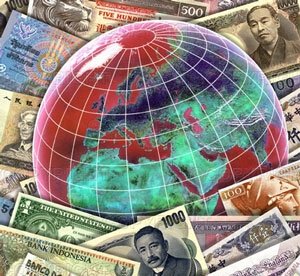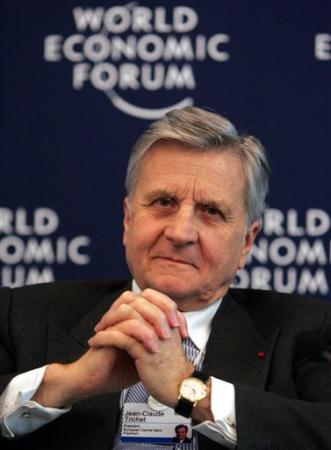Carbon Tax Scam Shifts from Climate to Poverty
September 21, 2010
Paul Joseph Watson
As the science behind global warming becomes increasingly discredited and its proponents are exposed as eugenics-obsessed control freaks who care only about destroying freedom, the effort to make Americans pay a global tax has shifted from the justification of climate change to that of poverty.
As we documented on Sunday, leaders from 60 nations will be meeting at the UN this week to push a tax on world financial transactions, formally launching a massive program to bankrupt the middle class and enrich the coffers of global government.
Separately, the leaders of Spain and France are also now calling for new “financing sources” with which to build the infrastructure of a one world government. Remember, this has nothing to do with poverty. As the leaked Danish text revealed, global institutions such as the IMF and the World Bank have no intention of handing the money looted from American taxpayers to poorer countries, they will merely continue to keep the third world in bondage with crippling loans while withholding the real wealth for themselves.
“We need to make more effort to look for alternative financing sources … that aren’t as vulnerable as the budgets of developed countries when faced with crises like the one we’re seeing today,” said Spanish Prime Minister Jose Luis Rodriguez Zapatero.
“Both he and French President Nicolas Sarkozy called for some form of financial tax to raise money to combat poverty, an idea already rejected by the International Monetary Fund and many Group of 20 major developed and developing nations,” reports Reuters.
Although climate change still gets a token mention in the call for a global tax, the justification of poverty has firmly overtaken it as the primary ruse via which globalists plan to conduct a massive transfer of wealth – not to poor nations – but to their own back pockets.
As the science behind global warming becomes increasingly discredited and its proponents are exposed as eugenics-obsessed control freaks who care only about destroying freedom, the effort to make Americans pay a global tax has shifted from the justification of climate change to that of poverty.
As we documented on Sunday, leaders from 60 nations will be meeting at the UN this week to push a tax on world financial transactions, formally launching a massive program to bankrupt the middle class and enrich the coffers of global government.
Separately, the leaders of Spain and France are also now calling for new “financing sources” with which to build the infrastructure of a one world government. Remember, this has nothing to do with poverty. As the leaked Danish text revealed, global institutions such as the IMF and the World Bank have no intention of handing the money looted from American taxpayers to poorer countries, they will merely continue to keep the third world in bondage with crippling loans while withholding the real wealth for themselves.
“We need to make more effort to look for alternative financing sources … that aren’t as vulnerable as the budgets of developed countries when faced with crises like the one we’re seeing today,” said Spanish Prime Minister Jose Luis Rodriguez Zapatero.
“Both he and French President Nicolas Sarkozy called for some form of financial tax to raise money to combat poverty, an idea already rejected by the International Monetary Fund and many Group of 20 major developed and developing nations,” reports Reuters.
Although climate change still gets a token mention in the call for a global tax, the justification of poverty has firmly overtaken it as the primary ruse via which globalists plan to conduct a massive transfer of wealth – not to poor nations – but to their own back pockets.
As the recently leaked UN blueprint revealed, the elite are determined to use a global tax as just one of the weapons in their arsenal to dismantle the middle class of richer nations.
In their own words, the globalists talk of their aim to “limit and redirect the aspirations for a better life of rising middle classes around the world,” in other words to reduce the standard of living for the middle classes in Western Europe and America.
As the opening session paper puts it: “The real challenge comes from the exponential growth of the global consumerist society driven by ever higher aspirations of the upper and middle layers in rich countries as well as the expanding demand of emerging middle-class in developing countries. Our true ambition should be therefore creating incentives for the profound transformation of attitudes and consumption styles.”
This is globalist talk for dismantling the middle classes by looting them with global taxes and consumption levies in the name of alleviating poverty in poorer areas of the world and stopping climate change. However, as we have already explained, this is merely a ruse. The money will not be “redistributed” to the poor, it will be swallowed up by the same globalist institutions running the scam.
To achieve their goal, the UN will have to oversee “nothing less than a fundamental transformation of the global economy,” states the report. In other words, economic growth will wither and be replaced by a “green economy” and a “post-industrial revolution.”
Since Spain’s “fundamental transformation” of its economy over to a “green economy” has devastated the country, with unemployment hitting a crippling 20 per cent, it’s unsurprising that Zapatero is now calling for a new global levy on financial transactions in an effort to force already destitute Americans to pick up the tab for the failed and economically crippling “green” measures that he inflicted on his own country while doing the bidding of his globalist masters.
Paul Joseph Watson is the editor and writer for Prison Planet.com. He is the author of Order Out Of Chaos. Watson is also a fill-in host for The Alex Jones Show. Watson has been interviewed by many publications and radio shows, including Vanity Fair and Coast to Coast AM, America’s most listened to late night talk show.


 l meeting of the world’s power elite. In an exclusive interview with The Corbett Report earlier today, Estulin revealed what the Bilderbergers will be discussing at this year’s confab in Sitges, Spain on June 3-6, 2010.
l meeting of the world’s power elite. In an exclusive interview with The Corbett Report earlier today, Estulin revealed what the Bilderbergers will be discussing at this year’s confab in Sitges, Spain on June 3-6, 2010. want to prevent another financial crisis. In his prepared printed and spoken remarks to the Council on Foreign Relations, Trichet emphasized that politicians, economists, and financiers must work across the Atlantic and collaborate on methods to create an international set of standards. It is his belief that through global governance, the resiliency of the global financial system can be assured, noting that ultimately it was governments’ use of taxpayer’s money, equivalent to around 25% of GDP on both sides of the Atlantic, that prevented another catastrophic great depression from occurring. With the backdrop of a U.S. financial regulation bill being stuck in the Senate, he argued three main points in support of creating internationally agreed rules.
want to prevent another financial crisis. In his prepared printed and spoken remarks to the Council on Foreign Relations, Trichet emphasized that politicians, economists, and financiers must work across the Atlantic and collaborate on methods to create an international set of standards. It is his belief that through global governance, the resiliency of the global financial system can be assured, noting that ultimately it was governments’ use of taxpayer’s money, equivalent to around 25% of GDP on both sides of the Atlantic, that prevented another catastrophic great depression from occurring. With the backdrop of a U.S. financial regulation bill being stuck in the Senate, he argued three main points in support of creating internationally agreed rules.